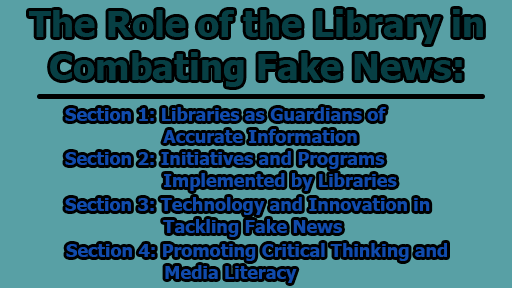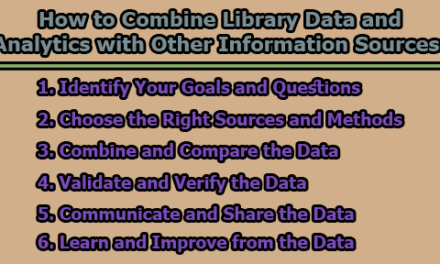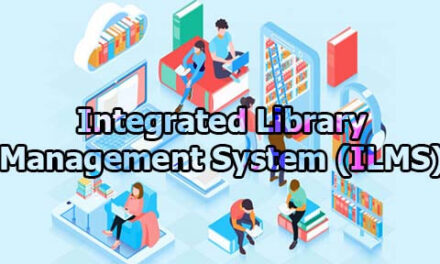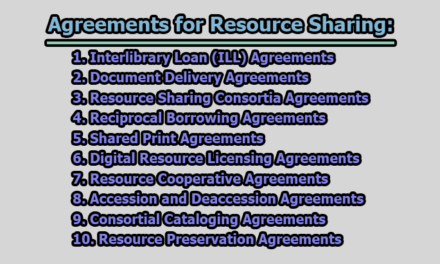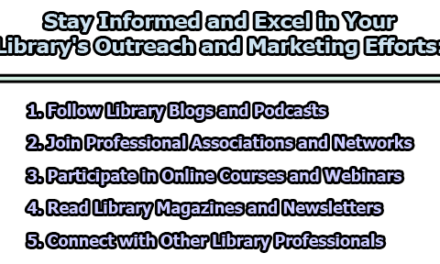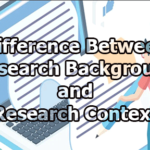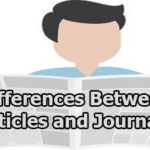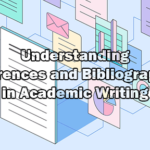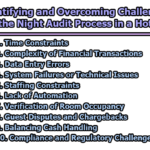The Role of the Library in Combating Fake News:
Fake news refers to deliberately fabricated or misleading information presented as legitimate news. In today’s digital era, the proliferation of fake news poses a significant threat to informed decision-making, public discourse, and societal harmony. With the ease of information dissemination through social media and other online platforms, distinguishing between accurate and false information has become increasingly challenging. In the article, we will explore the role of the library in combating fake news.
Section 1: Libraries as Guardians of Accurate Information:
1.1 Promoting Information Literacy: Libraries serve as hubs for information literacy programs. They educate users on evaluating sources, fact-checking techniques, and critical thinking skills. Through workshops, seminars, and online resources, libraries empower individuals to navigate the vast sea of information effectively.
1.2 Curating Reliable Resources: Librarians curate collections of trustworthy and credible resources. They meticulously select materials from reputable publishers, databases, and academic journals, ensuring access to accurate information for patrons. This curation process is based on quality, authenticity, and reliability.
1.3 Teaching Research Skills: Libraries offer guidance on conducting research using reliable sources. Librarians assist users in formulating effective search strategies, utilizing databases, and discerning between peer-reviewed articles and unreliable sources.
1.4 Providing Fact-Checking Tools: Libraries offer access to fact-checking tools and databases, empowering users to verify the authenticity of information. They teach patrons how to use these tools effectively to assess the credibility of news articles, images, and videos.
Section 2: Initiatives and Programs Implemented by Libraries:
2.1 Information Literacy Workshops: Libraries conduct workshops and seminars focused on information literacy. These sessions cover topics such as identifying bias, evaluating sources, understanding misinformation tactics, and critical analysis of news sources.
2.2 Collaboration with Schools and Communities: Libraries collaborate with educational institutions and community organizations to integrate information literacy into school curricula and community programs. They often organize outreach programs to reach a broader audience.
2.3 Online Resources and Guides: Libraries develop online resources and guides on critical thinking, fact-checking, and evaluating sources. These resources are accessible remotely, catering to individuals seeking information outside library premises.
2.4 Partnerships with Fact-Checking Organizations: Libraries establish partnerships with fact-checking organizations or initiatives, providing access to their resources and promoting their tools to combat misinformation.
Section 3: Technology and Innovation in Tackling Fake News:
3.1 Digital Literacy Programs: Libraries offer digital literacy programs that teach users how to navigate online platforms safely, recognize clickbait, identify deepfakes, and discern manipulated content.
3.2 Access to Trusted Online Sources: Libraries subscribe to databases and online platforms that host verified information. They provide access to these resources to the public, reinforcing the availability of credible sources.
3.3 Utilizing AI and Algorithms: Libraries explore the use of artificial intelligence (AI) and algorithms to identify and flag potentially misleading or false content. They leverage technology to automate the detection of fake news.
3.4 User-Friendly Fact-Checking Tools: Libraries invest in user-friendly interfaces for fact-checking tools, ensuring accessibility and ease of use for individuals with varying technological skills.
Section 4: Promoting Critical Thinking and Media Literacy:
4.1 Critical Analysis Skills: Libraries encourage critical thinking by fostering an environment where patrons question and evaluate information critically. They promote skepticism and teach individuals to approach information with a discerning eye.
4.2 Media Literacy Initiatives: Libraries conduct programs focusing on media literacy, educating users on recognizing propaganda techniques, understanding the role of bias, and differentiating between opinion and factual reporting.
4.3 Engaging Discussions and Debates: Libraries organize discussions, debates, and speaker series on media ethics, journalism standards, and the impact of misinformation on society. These events encourage dialogue and promote diverse perspectives.
4.4 Encouraging Responsible Sharing: Libraries emphasize the importance of responsible sharing of information. They advocate for verifying information before sharing and emphasize the role individuals play in stopping the spread of fake news.
In conclusion, libraries serve as guardians of accurate information and bastions of critical thinking. Their multifaceted approach to combating fake news involves education, collaboration, technology, and the promotion of critical thinking skills. By empowering individuals with information literacy, libraries play a crucial role in mitigating the harmful effects of fake news, thereby contributing to a more informed and discerning society.

Former Student at Rajshahi University

